Experiments riding 24th SpaceX cargo mission to space station study bioprinting, crystallization, laundry
Tuesday, 14 December 2021 16:51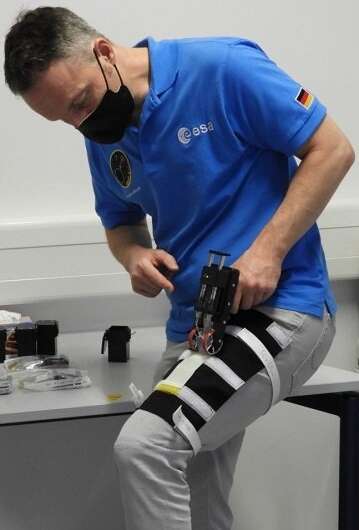
The 24th SpaceX cargo resupply services mission, targeted to launch in late December from NASA's Kennedy Space Center in Florida, carries scientific research and technology demonstrations to the International Space Station. The experiments aboard include studies of bioprinting, crystallization of monoclonal antibodies, changes in immune function, plant gene expression changes, laundering clothes in space, processing alloys, and student citizen science projects.
Learn more about these scientific experiments riding aboard the Dragon spacecraft to the orbiting lab:
Bioprinting bandages
Bioprinting, a subcategory of 3D printing, uses viable cells and biological molecules to print tissue structures. A study from the German Space Agency, Bioprint FirstAid, demonstrates a portable, handheld bioprinter that uses a patient's own skin cells to create a tissue-forming patch to cover a wound and accelerate the healing process.
Webb placed on top of Ariane 5
Tuesday, 14 December 2021 15:00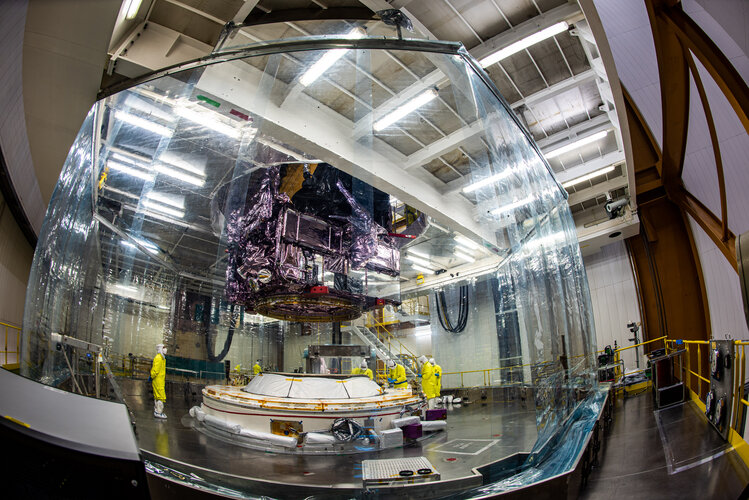
On Saturday 11 December, the James Webb Space Telescope was placed on top of the Ariane 5 rocket that will launch it to space from Europe’s Spaceport in French Guiana.
Locked in stone: Mars' missing water might be stored in clay mineral
Tuesday, 14 December 2021 14:46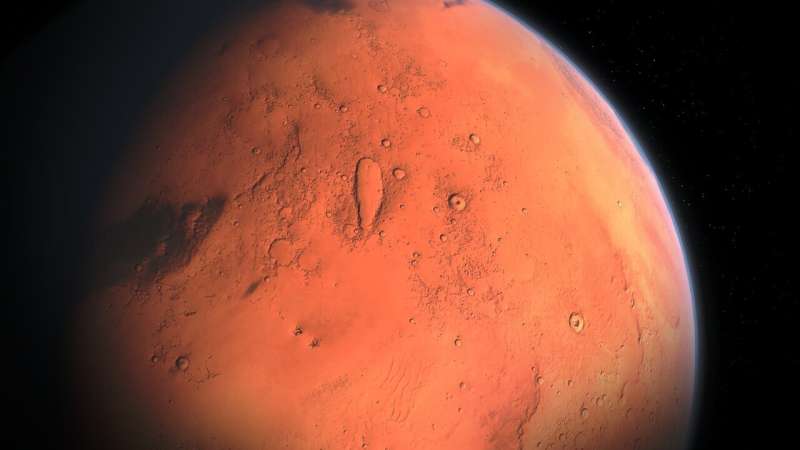
A clay mineral known as smectite could hold a substantial portion of the water missing from Mars, according to new research from Binghamton University, State University of New York.
Rivers and streams once flowed across the surface of Mars, etching channels still evident on the planet's surface today. Water in lakes once lapped ancient shores. But today, Mars' red sands appear bone-dry. Where did all that water go?
Some of that water is trapped in the planet's polar ice caps, which behave like stone due to Mars' frigid temperatures. The rest may have gone underground, locked inside clay minerals such as smectite.
New research from Binghamton University Geological Sciences and Environmental Studies Professor David Jenkins and former graduate student Brittany DePasquale provides information on how deep smectite could occur in the surface rocks of Mars. They found that iron-rich smectite, the least-stable form of smectite, can form to depths up to 30 km, much deeper than others might have predicted. In view of this rather robust stability for smectite, it appears that clay minerals are able to receive and store the missing water on Mars.
Aeolus paves the way for future wind lidars in space
Tuesday, 14 December 2021 14:35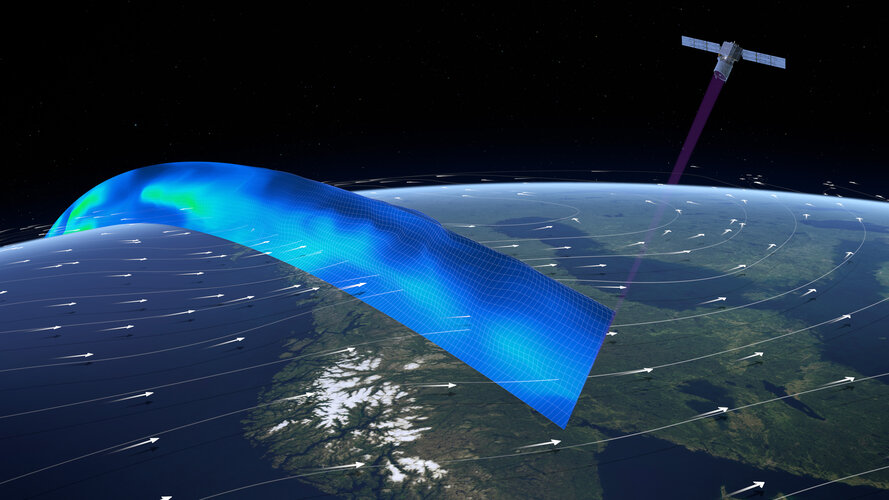
It’s hard to believe that ESA’s Aeolus wind mission has now been orbiting Earth for three years and, remarkably, exceeded its design life milestone. Aeolus has gone way further than its original goal of demonstrating that ground-breaking laser technology can deliver global profiles of the wind; its data are being distributed to weather forecasting services across the world in less than three hours of measurements being made in space. Moreover, Aeolus has laid the foundation for future Doppler wind lidar satellite missions.
Solar Orbiter publishes a wealth of science results from its cruise phase
Tuesday, 14 December 2021 14:00
For a mission yet to have entered its main science phase, Solar Orbiter has already generated a lot of great science. Today sees the publication of a wealth of results from the mission’s cruise phase.
Video: Double drop test success for ExoMars parachutes
Tuesday, 14 December 2021 13:35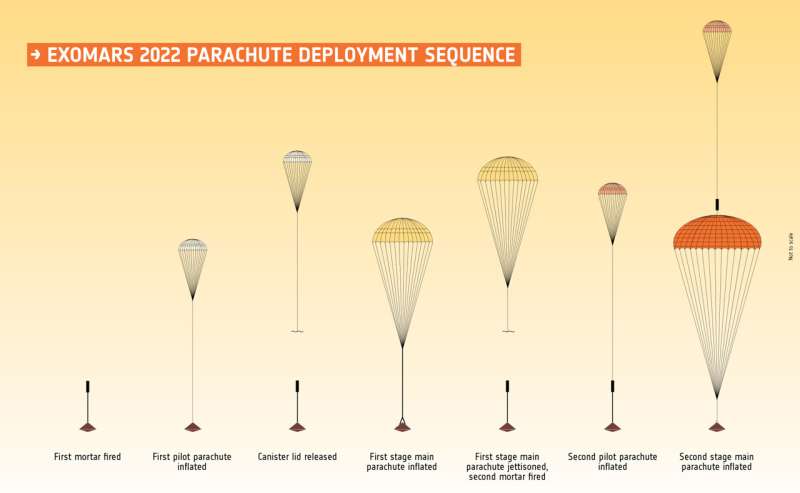
The largest parachute set to fly on Mars has completed its first successful high-altitude drop test, a critical milestone for ensuring the ExoMars mission is on track for launch in 2022. Both the first and second stage parachutes have now successfully flown this year.
A pair of high-altitude drop tests took place in Oregon on 21 November and 3 December as part of the ongoing parachute testing to ensure the safe delivery of the ExoMars Rosalind Franklin rover and Kazachok lander to the surface of Mars in June 2023.
Albedo wins license to sell 10-centimeter imagery
Tuesday, 14 December 2021 13:00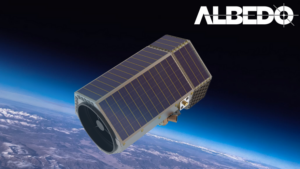
Earth observation startup Albedo was granted a National Oceanic and Atmospheric Administration license to sell commercial optical imagery with a resolution of 10 centimeters per pixel.
Space traffic control startup Kayhan Space raises $3.7 million in seed funding
Tuesday, 14 December 2021 13:00
WASHINGTON — Kayhan Space, a startup based in Boulder, Colorado, announced Dec. 14 it has closed a $3.75 million seed funding round. The company developed a space traffic control system for satellite operators to help prevent collisions in Earth’s orbit.
Space traffic analytics startup Kayhan Space raises $3.7 million in seed funding
Tuesday, 14 December 2021 13:00
WASHINGTON — Kayhan Space, a startup based in Boulder, Colorado, announced Dec. 14 it has closed a $3.75 million seed funding round. The company developed a cloud-based collision-avoidance software service for low Earth orbit satellite operators.
Rocket Lab to acquire SolAero Holdings
Tuesday, 14 December 2021 12:46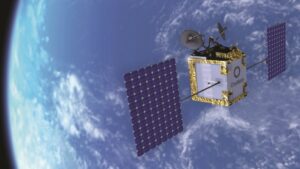
Rocket Lab announced Dec. 13 that it is acquiring solar power system manufacturer SolAero Holdings, the latest in a series of acquisitions by Rocket Lab of component developers.
China tests hypersonic flight engine using rejected design developed in US
Tuesday, 14 December 2021 12:32 A team of scientists has built and successfully tested a prototype based on a novel idea created more than two decades ago by an American space agency expert of Chinese descent.
A Chinese research team has built and tested a prototype hypersonic flight engine, capable of operating in Mach 4 to Mach 8 (4,900-9,800 kph) speed conditions, based on a design cooked up in NASA but later rejected
A team of scientists has built and successfully tested a prototype based on a novel idea created more than two decades ago by an American space agency expert of Chinese descent.
A Chinese research team has built and tested a prototype hypersonic flight engine, capable of operating in Mach 4 to Mach 8 (4,900-9,800 kph) speed conditions, based on a design cooked up in NASA but later rejected Orbex begins construction of new rocket launchpad in the UK
Tuesday, 14 December 2021 12:32 Orbex, Europe's leading private small satellite launch services provider, has announced it has started construction of its first state-of-the-art Launch Platform, the first orbital space launchpad to be built in the UK for more than half a century.
Orbex has commissioned Motive Offshore Group, a leading Scottish company specialising in the design and manufacture of marine and lifting equip
Orbex, Europe's leading private small satellite launch services provider, has announced it has started construction of its first state-of-the-art Launch Platform, the first orbital space launchpad to be built in the UK for more than half a century.
Orbex has commissioned Motive Offshore Group, a leading Scottish company specialising in the design and manufacture of marine and lifting equip How to see comet Leonard, according to the researcher who discovered it
Tuesday, 14 December 2021 11:24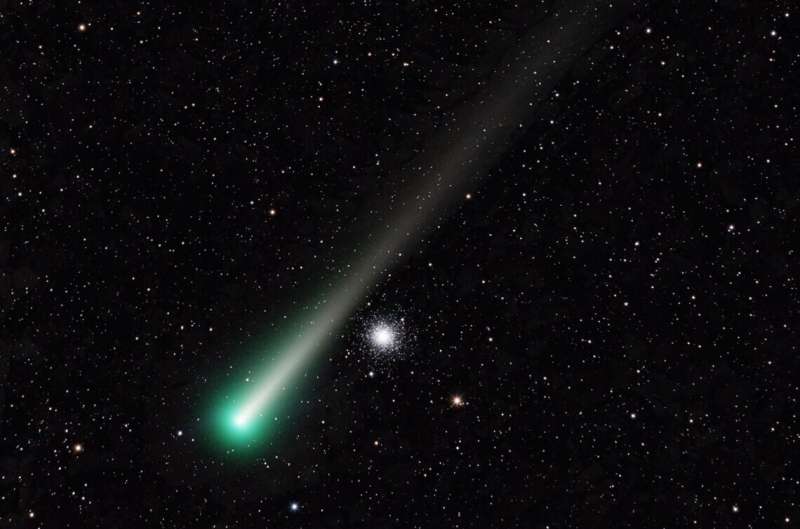
Now is the best time to get a glimpse of Comet C/2021 A1, better known as Comet Leonard. It's named for its discoverer, Gregory Leonard, a senior research specialist at the University of Arizona Lunar and Planetary Laboratory.
Every night with clear skies, astronomers with LPL's Catalina Sky Survey scan the sky for near-Earth asteroids—space rocks with the potential of venturing close to Earth at some point.
During one such routine observation run on Jan. 3, Leonard spotted a fuzzy patch of light tracking across the starfield background in a sequence of four images taken with the 1.5-meter telescope at the summit of Mount Lemmon.
Software-defined OneSat ready for production
Tuesday, 14 December 2021 11:16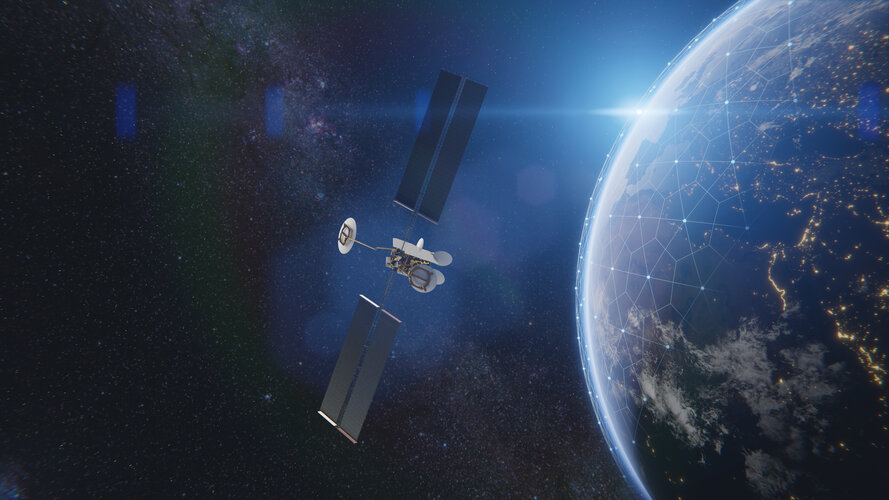
The latest type of telecommunication satellite that can respond from space to changing demands on Earth is about to start assembly of its electronic components.
Double drop test success for ExoMars parachutes
Tuesday, 14 December 2021 07:30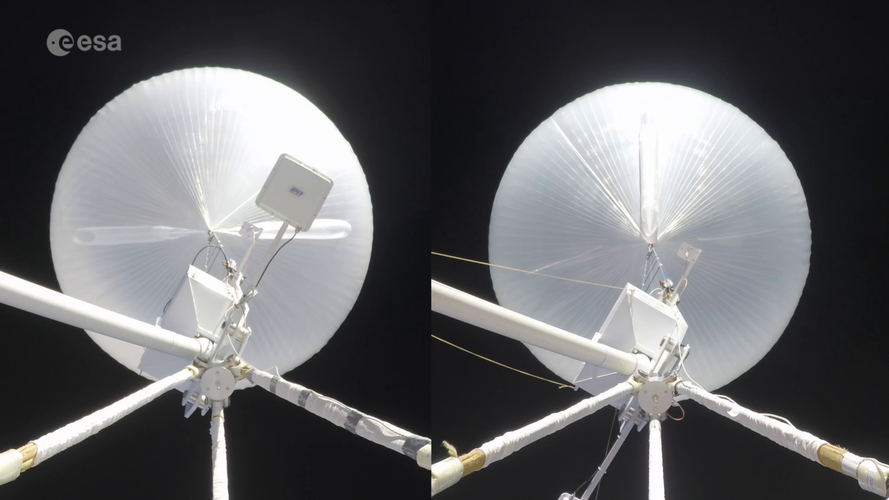
The largest parachute set to fly on Mars has completed its first successful high-altitude drop test, a critical milestone for ensuring the ExoMars mission is on track for launch in 2022. Both the first and second stage parachutes have now successfully flown this year.

